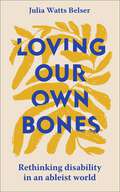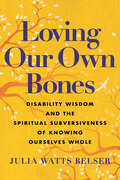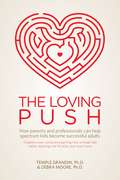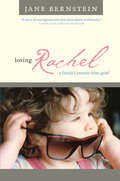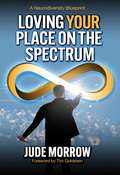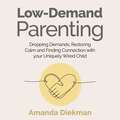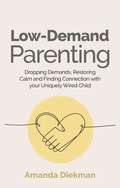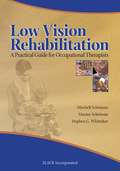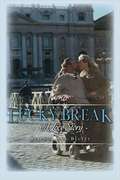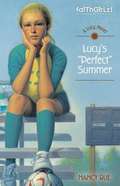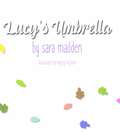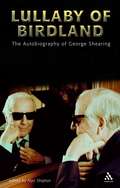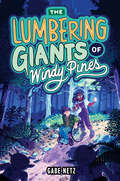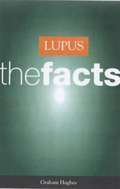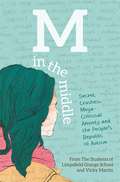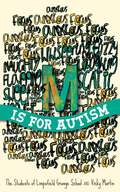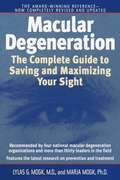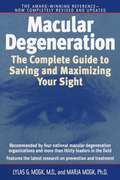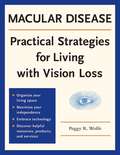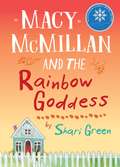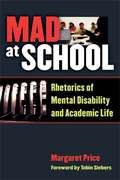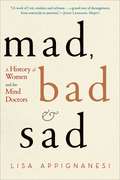- Table View
- List View
Loving Our Own Bones: Rethinking disability in an ableist world
by Julia Watts BelserOpen the Bible, and disability is everywhere. Moses stutters and thinks himself unable to answer God's call. Isaac's blindness lets his wife trick him into bestowing his blessing on his younger son. Jesus heals the sick the blind, the paralyzed, and the possessed. For centuries, these stories have been told and retold by commentators who treat disability as misfortune, as a metaphor for spiritual incapacity, or as a challenge to be overcome.Loving Our Own Bones turns that perspective on its head. Drawing insights from the hard-won wisdom of disabled folks who've forged difference into fierce and luminous cultural dissent, Belser offers fresh and unexpected readings of familiar biblical stories, showing how disability wisdom can guide us all toward a powerful reckoning with the complexities of the flesh. She talks back to biblical commentators who traffic in disability stigma and shame, challenging interpretations that demean disabled people and diminish the vitality of disabled lives. And she shows how Sabbath rest can be a powerful counter to the relentless demand for productivity, an act of spiritual resistance in a culture that makes work the signal measure of our worth.With both a lyrical love of tradition and incisive political analysis, Belser braids spiritual perspectives together with keen activist insights-inviting readers to claim the power and promise of spiritual dissent, to nourish their own souls through the revolutionary art of radical self-love.
Loving Our Own Bones: Disability Wisdom and the Spiritual Subversiveness of Knowing Ourselves Whole
by Julia Watts BelserA transformative spiritual companion and deep dive into disability politics that reimagines disability in the Bible and contemporary cultureAn essential read that will foster and enrich conversations about disability, spirituality, and social justice&“What&’s wrong with you?&”Scholar, activist, and rabbi Julia Watts Belser is all too familiar with this question. What&’s wrong isn&’t her wheelchair, though—it&’s exclusion, objectification, pity, and disdain.Our attitudes about disability have such deep cultural roots that we almost forget their sources. But open the Bible and disability is everywhere. Moses believes his stutter renders him unable to answer God&’s call. Jacob&’s encounter with an angel leaves him changed not just spiritually but physically: he gains a limp. For centuries, these stories have been told and retold in ways that treat disability as a metaphor for spiritual incapacity or as a challenge to be overcome.Through fresh and unexpected readings of the Bible, Loving Our Own Bones instead paints a luminous portrait of what it means to be disabled and one of God&’s beloved. Belser delves deep into sacred literature, braiding the insights of disabled, feminist, Black, and queer thinkers with her own experiences as a queer disabled Jewish feminist. She talks back to biblical commentators who traffic in disability stigma and shame. What unfolds is a profound gift of disability wisdom, a radical act of spiritual imagination that can guide us all toward a powerful reckoning with each other and with our bodies.Loving Our Own Bones invites readers to claim the power and promise of spiritual dissent, and to nourish their own souls through the revolutionary art of radical self-love.
The Loving Push: How Parents and Professionals Can Help Spectrum Kids Become Successful Adults
by Temple Grandin Debra MooreThe purpose of this book is to help parents let go and give careful, loving pushes to get their child to try new things. Temple Grandin, Debra Moore spell out which steps you can take to restore your child’s hope and motivation--and what you must avoid.
Loving Rachel: A Family's Journey from Grief
by Jane BernsteinIn 1983, Jane Bernstein had everything she ever wanted: a healthy four-year-old daughter, Charlotte; a happy marriage; a highly praised first novel; and a brand new baby, Rachel. But by the time Rachel was six weeks old, a neuro-ophthalmologist told Jane and her husband that their baby was blind. Although there was some hope that Rachel might gain partial vision as she grew, her condition was one that often resulted in seizure disorders and intellectual impairment. So began a series of medical and emotional setbacks that were to plague Rachel and her parents and strain their marriage to the breaking point. Spanning the first four years of Rachel’s life, Loving Rachel is a heartbreaking chronicle of a marriage and a compelling story of parental love told with searing honesty and surprising humor.
Loving Your Place on the Spectrum: A Neurodiversity Blueprint
by Jude MorrowLoving Your Place on the Spectrum: A Neurodiversity Blueprint provides answers to many of your questions about autism, helping you to embrace neurodiversity and love your autistic self and the autistic people in your life. Jude Morrow speaks from personal experience when he says that he has learned to be proud to be autistic and he wants you to be proud too.Browse through the many books available on autism and you might notice a trend: too many of them are written by neurotypical professionals who aim to &“fix&” autism or help autistic people appear &“normal.&” Jude Morrow noticed this problem and decided that something needed to change. Loving Your Place on the Spectrum is a guide for living a happy and successful autistic life. Jude combines his own experiences as an autistic man with the stories of others to provide a handbook to help autistic individuals navigate life&’s major changes, from childhood to college, jobs, and relationships. Each chapter identifies common issues faced by autistic people of a particular age or social group and explains how educators, teachers, parents, and professionals can be supportive through all these life stages. The world needs a new perspective on autism, and Jude Morrow&’s Loving Your Place on the Spectrum provides parents, workplaces, individuals, and society an alternative, strengths-based viewpoint, where autistic people are accepted, embraced, and loved.
Low-Demand Parenting: Dropping Demands, Restoring Calm, and Finding Connection with your Uniquely Wired Child
by Amanda DiekmanShort, easy-read guide for parents on how to reduce family conflict by dropping unnecessary demands from daily life to help neurodivergent families to thrive."Low-demand parenting requires radical acceptance. It says to the kid right in front of you, I see you, just as you are. - You are ok here. I love you right here."Parent to neurodivergent children and autistic adult, Amanda Diekman, outlines a parenting approach that finally lowers the bar for the whole family, enabling the equilibrium of the home to be restored.Low-demand parenting allows you to drop the demands and expectations that are making family life impossible and embrace the joyful freedom of living life with low demands. It can be a particularly effective approach for children with high anxiety levels including neurodivergent children. Amanda talks from experience and teaches you how to identify what the big, tiny and invisible demands are for your own child and gives you the step-by-step instructions on how to drop them.Full of practical resources and scripts that are easy to implement in busy everyday life, this book is your flashlight and your map to parenting your uniquely wired child. It will not tell you where to go, but it will help you find your way so you and your family thrive.(P) 2023 Jessica Kingsley Publishers
Low-Demand Parenting: Dropping Demands, Restoring Calm, and Finding Connection with your Uniquely Wired Child
by Amanda Diekman"Low-demand parenting requires radical acceptance. It says to the kid right in front of you, I see you, just as you are. - You are ok here. I love you right here."Parent to neurodivergent children and autistic adult, Amanda Diekman, outlines a parenting approach that finally lowers the bar for the whole family, enabling the equilibrium of the home to be restored.Low-demand parenting allows you to drop the demands and expectations that are making family life impossible and embrace the joyful freedom of living life with low demands. It can be a particularly effective approach for children with high anxiety levels including neurodivergent children. Amanda talks from experience and teaches you how to identify what the big, tiny and invisible demands are for your own child and gives you the step-by-step instructions on how to drop them.Full of practical resources and scripts that are easy to implement in busy everyday life, this book is your flashlight and your map to parenting your uniquely wired child. It will not tell you where to go, but it will help you find your way so you and your family thrive.
Low Vision: Reflections of the Past, Issues for the Future
by Virginia E. Bishop Jane N. Erin Anne CornThis research report, based on a multiphase survey of professionals, identifies important trends into the next century. Designed for administrators, policy planners and university instructors, as well as for direct service providers, Low Vision includes background overview papers by six eminent leaders in the low vision field.
Low Vision: A Resource Guide with Adaptations for Students with Visual Impairments
by Nancy Levack Gretchen Stone Virginia BishopA user friendly guide to current philosophies on up-to-date medical, optical, and technical information, and practical methodologies and adaptations for Students with Visual impairments.
Low Vision Rehabilitation: A Practical Guide for Occupational Therapists
by Mitchell Scheiman Maxine Scheiman Stephen G. WhittakerLow vision rehabilitation is rapidly growing as a specialty practice for occupational therapists. This growth requires practical, evidence-based information on the evaluation and treatment of the effects of low vision on occupational performance. Responding to this need, Low Vision Rehabilitation: A Practical Guide for Occupational Therapists blends standards of practice that have been developed over 50 years by low vision therapists and optometrists, with the latest scientific research and the unique perspective of occupational therapists. Low Vision Rehabilitation presents an emerging model in which occupational therapists practice as part of a team of vision rehabilitation professionals serving adults with low vision. Occupational therapists offer a unique contribution to the vision rehabilitation team, with a focus on meaningful occupational goals, the incorporation of occupation into therapy, and the orchestration of environmental, social, and non-visual personal factors into a treatment plan. Mitchell Scheiman, Maxine Scheiman, and Stephen Whittaker have developed a practical and straightforward text outlining an evaluation approach to interventions that focus on recovering occupational performance in adults. Special features * Incorporates concepts from the AOTA Occupational Therapy Practice Framework: Domain and Process * Provides most of the core knowledge required for the ACVREP low vision certification examination and AOTA specialty certification in low vision * Includes an occupational therapy vision rehabilitation evaluation consisting of four components: occupational profile/case history, evaluation of visual factors, environmental evaluation, evaluation of occupational performance * Emphasizes intervention and low vision rehabilitation treatment including modification of the environment, use of non-optical assistive devices, use of optical devices, and use of computer technology * Provides valuable information on how to start an independent practice in low vision rehabilitation * Includes chapters on diabetic management and electronic assistive technology * Includes access to a companion website with printable forms and additional resources with text purchase Written by authors who are optometrists, occupational therapists, researchers, and certified low vision therapists (CLVT), Low Vision Rehabilitation employs an interdisciplinary perspective that is unique, practical, and credible.
The Luckiest Girl in the World
by Steven LevenkronKatie is a promising figure skater whose divorced mother drives her relentlessly to perfect her skills, at almost any expense. What her mother and coach don't know, but her English teacher begins to figure out, is that when Katie gets to an emotional edge, she hides and cuts herself; the pain and blood help focus her mind. Not until she goes over that edge one day at school and begins slamming her locker door on her hand and then banging her head on the wall does she begin to get the professional help she needs. After a couple of false starts, she finds a psychiatrist experienced in working with teens in trouble who enables her to tell truths she hasn't for years been able to admit to herself or speak of to anyone else. Her mother resists other adults' help and almost succeeds in getting her out of therapy, especially group therapy with girls her mother labels "delinquents." But Katie finally manages to make some choices against her mother's wishes--an immense step out of the depths of years of co-dependence. As the story ends, she has come to realize the girls in the group are capable of being real friends--something she hasn't had for a long while--and she is capable of making choices toward her own healing, the first of which is to seek and accept real help and to distinguish it from pleasing adults who are using her to assuage their own pain.
Lucky Break
by Belinda BegleyFormer volleyball player Kirk Kilgour is awakened from an intense dream about his earlier life by the Northridge earthquake. Kirk, a high-level quadriplegic as the result of a training accident, is trapped in his bed until help arrives to clear debris from his room and begin the difficult four hour process of getting him ready for the day. The forty-seven-year-old man had been a college All-American before becoming a professional volleyball player who was living in Italy with his wife at the time of the injury. <p><p> In the first days after his life changed forever, he decided to become “the best quadriplegic in the world.” Although he loses his career, his wife, and the use of most of his body, he lives a life with no regrets, one in which he chooses happiness each day. Belinda is a forty-six-year-old divorced mother of three and self-professed sports junkie. Although content with her life in Vail, Colorado, she desires what she has never known—a man worthy of her love. Belinda learns of Kirk through her friendship with his nephew, who tells her that his uncle is a professional broadcaster who might possibly be looking for a new attendant to accompany him to the 1996 Atlanta Olympics. Although she has no background in personal health care, Belinda becomes obsessed with the idea of working for Kirk at the Olympics, and she pursues the idea for a year. <p><p> A telephone meeting is finally arranged between the two, and after some thought Kirk invites her to Los Angeles to train as his attendant. Belinda is initially excited about the trip but then begins to wonder about the wisdom of her idea. When she meets Kirk in person, she is taken aback by his appearance because all she can see is the power wheelchair. Kirk, smitten with Belinda from the start and always the competitor, decides that he will win her affection. Kirk has a way of making people quickly forget about the disability. When Belinda sees Kirk out of the wheelchair for the first time, she begins to regard him as a man, a very handsome man.
Lucy's Perfect Summer
by Nancy RueFacing up to a cheater at an elite soccer day camp and some difficult events at home helps eleven-year-old Lucy do some growing up during a summer which, while very different from the one she imagined, turns out to be just right.
Lucy's Umbrella
by Sara MaddenLucy has vitiligo. She finds beauty in the patterns on her skin. She also finds beauty in the patterns she notices out in nature. Follow Lucy as she goes on a walk through nature, admiring everything she sees.
Lullaby of Birdland
by George Shearing Alyn ShiptonBritish pianist George Shearing emigrated to the United States in 1947, going on to achieve success in an American jazz world impressed with the accomplishments of the blind musician. In his autobiography he narrates his childhood, his beginnings in music, and his activities and encounters in the world of jazz. Annotation ©2004 Book News, Inc., Portland, OR (booknews.com)
The Lumbering Giants of Windy Pines
by Mo NetzIn this debut spooky adventure, Jerry and her trusty wheelchair move into a creepy motel at the edge of the woods where nothing is as it seems. When her mom disappears, it’s up to Jerry to brave the forest and its demons so she can save what’s left of her family.Ever since her dad died, 11-year-old Jerry Blum and her mom have bounced around dead-end towns, staying in a series of rundown motels where her mother picks up housekeeping work and Jerry can get around in her wheelchair. But the Slumbering Giant motel is different. Lights blink on and off in the surrounding trees, a mysterious radio station plays only at midnight, and people disappear into the woods, never to been seen again. Not to mention that Jerry’s mom keeps vanishing to do “special work” that she refuses to discuss. When her mother doesn’t come home one morning, Jerry springs into action.Luckily, she’s not alone. Paul, a pocket-size imaginary dragon, and Chapel, a new friend with a penchant for the supernatural, join Jerry’s search for her missing mom. But along the way Jerry discovers her mother’s terrible secret: she’s not a housekeeper at all; in fact, she’s been defending the town from demons that have been haunting it for generations.Armed with nothing but a Ren Faire sword and a backpack, Jerry and her friends venture into the forbidden woods to save Jerry’s mother. But the “demons” hiding there aren’t what they seem, and Jerry must unravel the truth behind the town’s legend, or risk losing what’s left of her family.
Lupus The Facts
by Graham HughesThis easy-to-read book explains Lupus. How does Lupus affect people? What can be done if someone develops lupus?
M in the Middle: Secret Crushes, Mega-Colossal Anxiety and the People’s Republic of Autism
by Vicky Martin The Students of Limpsfield Grange SchoolI'll never have a Card Emporium series of life events: a boyfriend, a fiancé, a husband and a future. A future with lots of sparkly cards celebrating all these big life events. I was on course and now I'm not. Life after diagnosis isn't easy for M. Back in her wobbly world, there are lots of changes and ups and downs to get used to, not just for M, but for her friends and family too. Faced with an exciting crush, a pushy friend and an unhelpful Headteacher, how long until the beast of anxiety pounces again? Written by Vicky Martin and the students of Limpsfield Grange, a school for girls with Autism Spectrum Disorder and communication and interaction difficulties, M's story draws on the real life experiences of teens with autism.
M is for Autism
by Vicky Martin The Students of Limpsfield Grange School Robert PritchettM. That's what I'd like you to call me please. I'll tell you why later. Welcome to M's world. It's tipsy-turvy, sweet and sour, and the beast of anxiety lurks outside classrooms ready to pounce. M just wants to be like other teenagers her age who always know what to say and what to do. So why does it feel like she lives on a different plane of existence to everyone else? Written by the students of Limpsfield Grange, a school for girls with Autism Spectrum Disorder with communication and interaction difficulties, M is for Autism draws on real life experiences to create a heartfelt and humorous novel that captures the highs and lows of being different in a world of normal.
Macular Degeneration: The Complete Guide to Saving and Maximizing Your Sight
by Lylas G. Mogk Marja MogkThe acclaimed book on macular degeneration--now completely revised and updated with cutting edge research and the latest developments in the field.More than fifteen million Americans have age-related macular degeneration (AMD), and the disease will strike 200,000 more people this year. It is the most prevalent cause of vision loss in the western world. Dr. Lylas Mogk, the founding director of the Visual Rehabilitation and Research Center of the Henry Ford Health System, has a unique professional and personal understanding of AMD. A doctor and loving daughter of a parent with this frightening though manageable condition, Mogk here explains exactly what it is and how to limit its effect on your life. Reassuring and comprehensive--complete with illuminating first person stories of people with AMD--Macular Degeneration will help you or someone you love with information on* Reducing your risk factors* Revolutionary new technology, including laser surgery and alternative treatments* New research discoveries in nutrition--and eye-healthy recipes* The latest low-vision computer software programs* Coping with depression and frustration* Active online communities of people with macular degeneration Plus a Low Vision Living Rehab program to help you read better, see better, and live independently!From the Trade Paperback edition.
Macular Degeneration: The Complete Guide to Saving and Maximizing Your Sight
by Lylas G. Mogk Marja MogkDr. Lylas Mogk has a unique personal and professional understanding of AMD. This book explains how to successfully manage and limit its effect on a person's life.
Macular Disease: Practical Strategies for Living with Vision Loss
by Peggy R. WolfeThis invaluable guide to living well with vision loss is the perfect blend of abundant factual material and real-life experience. The book's positive, take-charge approach offers reassurance, hope, and hundreds of proven techniques, strategies, and tips for both the newly diagnosed and those at later stages of their disease. "My Story" vignettes in each chapter describe the author's fears, foibles, and triumphs in challenging situations. Readers will identify with the author's experiences and be encouraged by knowing she successfully traveled the same path.
Macy Mcmillan and the Rainbow Goddess
by Shari GreenWinner of the 2018 ALA Schneider Family Middle School Books Award. Sixth grade is coming to an end, and so is life as Macy McMillan knows it. Already a "For Sale" sign mars the front lawn of her beloved house. Soon her mother will upend their perfect little family, adding a stepfather and six-year-old twin stepsisters. To add insult to injury, what is Macy's final sixth grade assignment? A genealogy project. Well, she'll put it off - just like those wedding centerpieces she's supposed to be making.Just when Macy's mother ought to be understanding, she sends Macy next door to help eighty six-year-old Iris Gillan, who is also getting ready to move - in her case into an assisted living facility. Iris can't pack a single box on her own and, worse, she doesn't know sign language. How is Macy supposed to understand her? But Iris has stories to tell, and she isn't going to let Macy's deafness stop her. Soon, through notes and books and cookies, a friendship grows. And this friendship, odd and unexpected, may be just what Macy needs to face the changes in her life. Shari Green, author of Root Beer Candy and Other Miracles, writes this summer story with the lightest touch, spinning Macy out of her old story and into a new one full of warmth and promise for the future.
Mad at School: Rhetorics of Mental Disability and Academic Life
by Margaret PriceMad at School explores the contested boundaries between disability, illness, and mental illness in the setting of U.S. higher education. Much of the research and teaching within disability studies assumes a disabled body but a rational and energetic (an 'agile') mind. In Mad at School, scholar and disabilities activist Margaret Price asks: How might our education practices change if we understood disability to incorporate the disabled mind?
Mad, Bad and Sad: A History of Women and the Mind Doctors
by Lisa AppignanesiThis fascinating history of mind doctors and their patients probes the ways in which madness, badness, and sadness have been understood over the last two centuries. Lisa Appignanesi charts a story from the days when the mad were considered possessed to our own century when the official psychiatric manual lists some 350 mental disorders. Women play a key role here, both as patients "among them Virginia Woolf, Sylvia Plath, and Marilyn Monroe" and as therapists. Controversially, Appignanesi argues that women have significantly changed the nature of mind-doctoring, but in the process they have also inadvertently highlighted new patterns of illness.
